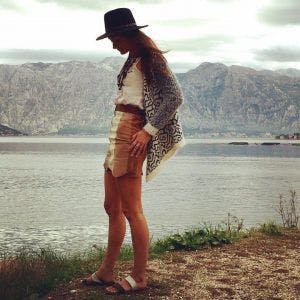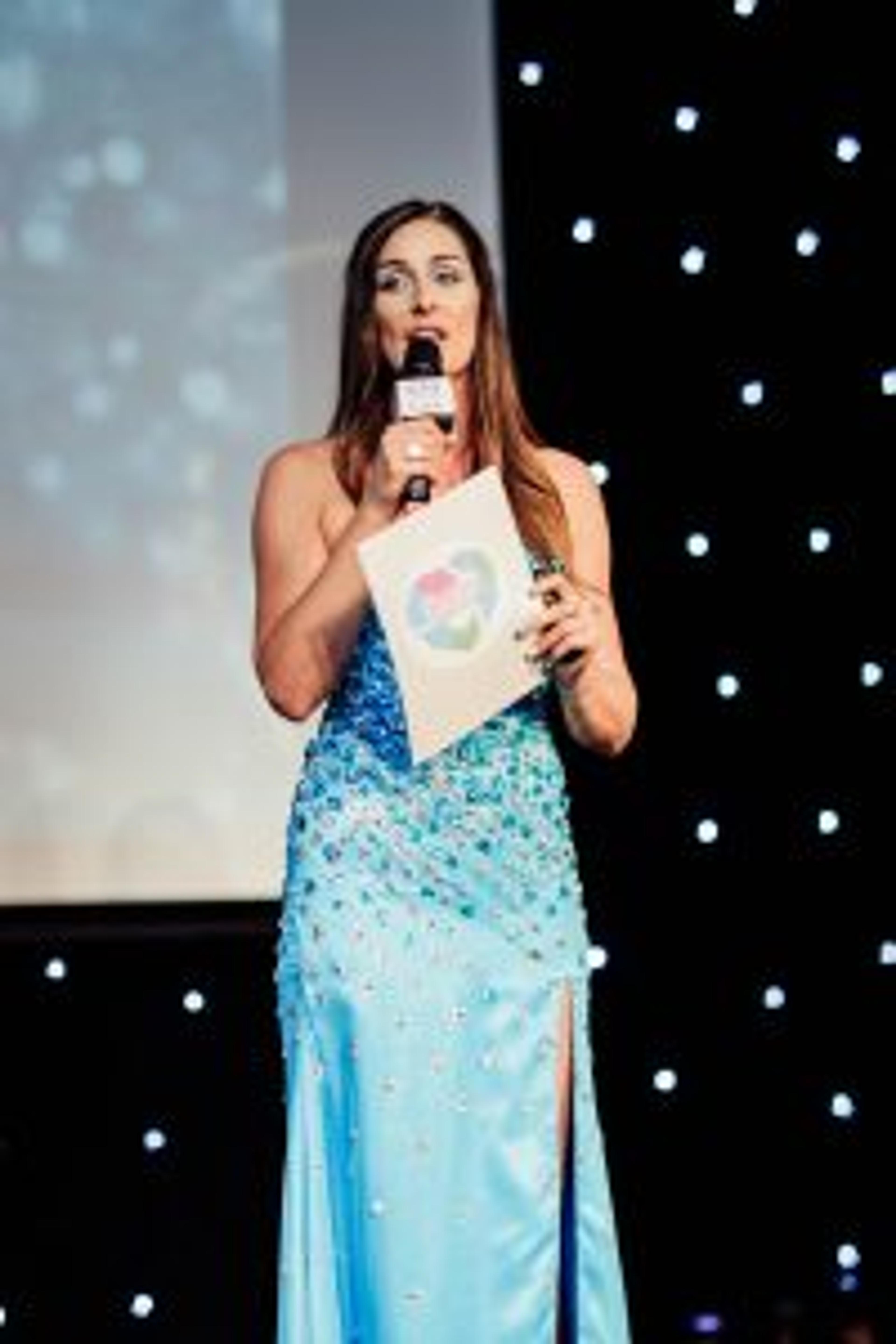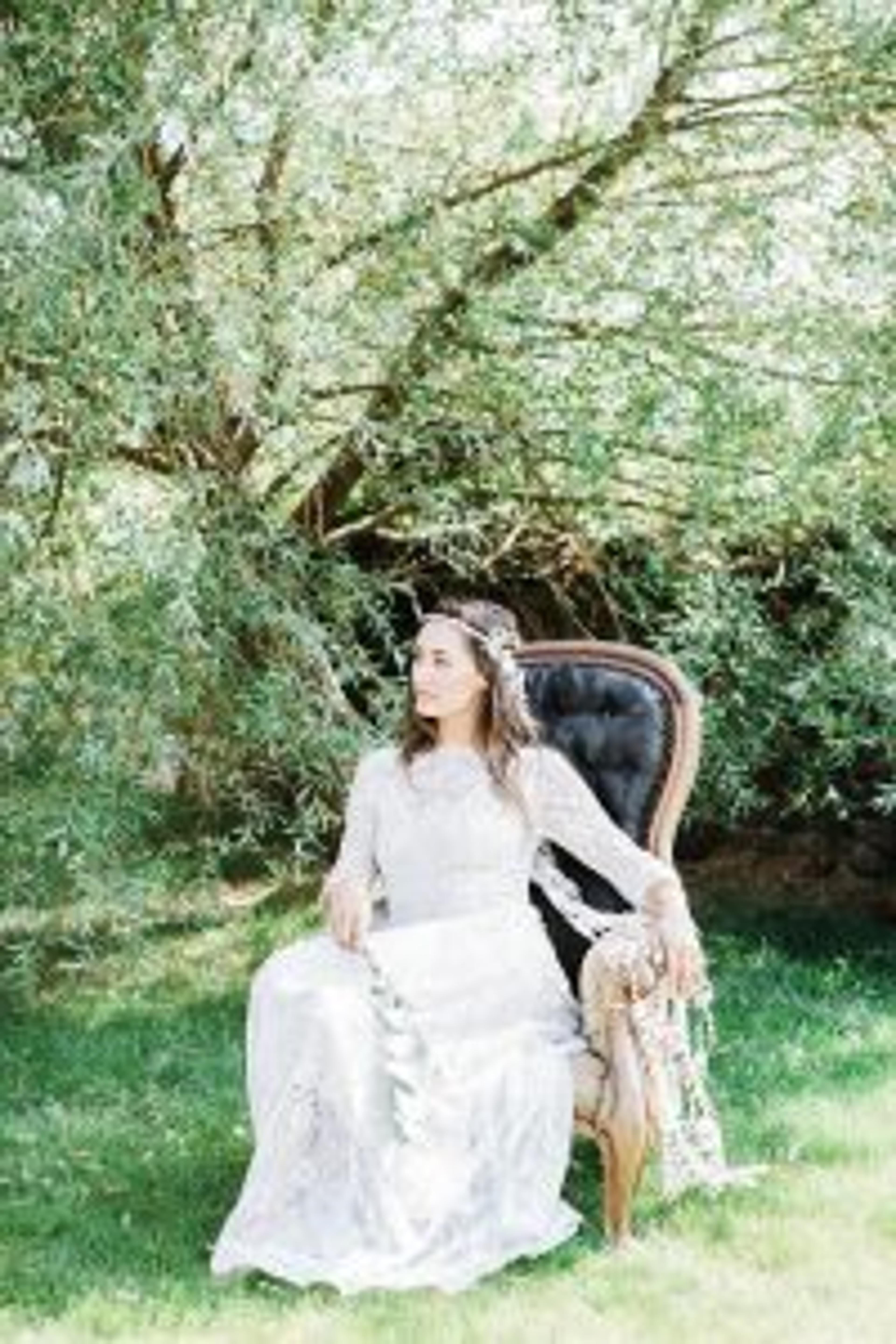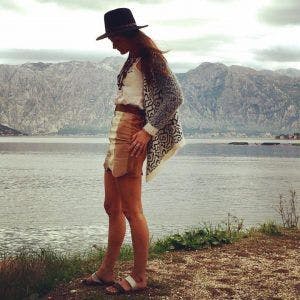Sustainable and ethically-sourced fashion is close to our hearts here at #TeamCoco and we are always looking to find UK entrepreneurs who champion this industry. Kelly Levell of We Do Ethical is the perfect example of this, not only does she run her own successful sustainability consultancy, she also is the girl boss behind We Do Ethical’s Not-For-Profit organisation.
Emma Harrison spoke to Kelly about her mission to motivate people and businesses to be more eco-friendly, why the world of fashion needs to be more sustainable and how a sandman in Ayia Napa was the catalyst for naming her business!
Can you give the House of Coco readers an insight as to who you are and what We Do Ethical is?
I’m a person who loves to discover and share ways to live better and encouraging others to be the change towards better living is my passion. I founded We Do Ethical in 2009 on my second year of study at university. It started with a project that aired on ITV News called “What Is Fast Fashion?” to raise awareness of how and where clothing is made.
I soon realised that fashion is nowism and an influencing industry that was not just about clothing. Being ethically minded is a lifestyle choice and through my research I found that this market sector was something that had huge growth potential and was also something that I really loved!
So, on my final year of study I set up my Not-for-profit (NFP) organisation, with the help of ITV Fixers. Once I had graduated, I soon moved to London and worked writing freelance for publications, PR companies and started work on my own fashion shows, events, WeDoReDo workshops and shopping stalls to give ethical living a glamorous platform.

What was the inspiration and vision behind We Do Ethical?
With the knowledge that fashion is the second largest polluting industry on earth, I looked for ways to create fashion without harming people and planet… upcycling and recycling clothing. This was the start of my journey to live life sustainably but also in style. I started sharing my tips and the products from brands that I loved to help spread the message of buying better to create my vision for a more eco-friendly and socially responsible future.
Your business is divided between your consultancy where you advise businesses on how to be more sustainable and your NFP which runs a series of community programmes? Do you have a different approach to each part of the business?
You could say that I started backwards really, with my NFP before the business. The consultancy started four years after I had founded the NFP. I keep the same approach for both because they are both solving the same problem and building a greener future, just in different ways. The nfp org focuses on helping people/ consumers and my consultancy focuses on assisting brands and businesses to be more conscious of how they buy and what they use day to day.
Was it a ‘lightbulb’ moment or was it more of a slow burning process?
There was one moment I remember fondly… Whilst on Nikki beach, Ayia Napa, my best girl friend from university Jade and I built a life-sized sand man, then sat next to him and got talking about what I could call my organisation. At the time I was upcycling lots of clothing, redoing clothes and selling them at festivals as a pop-up shop. Jade said, “So what do you actually do?” I shouted out… “We do re do,” and that was the first name I got up running with.
Now I had a name for my brand, I set myself a plan and this has grown each year. It has been slow burning in some ways as each year I learn more myself, so I push a new message, take on a new member of staff and develop my key messages. But on the other hand, I always knew what I wanted, so from that lightbulb moment with the name, everything is moving as it should.
Has sustainable fashion always been important to you?
No way! When I was at school, I used to buy all the fast fashion in the high street shops… luxury handbags, shoes, little black dresses’… the list is endless. I was obsessed with getting as much as I could for as little money as possible. I would have my friends stay over at the weekend, get them well styled in my outfits and head off into town to dance the night away; without a second thought about who made my clothes or where they came from. I was uneducated and buying blind.
Did you have any fears or worries when launching your business and how did you overcome them?
This biggest fear for me when starting my business was being self-sufficient. This is something I have always needed to be, and I feel like I carry that same courage and responsibility through to my business. It’s the biggest fear that actually never goes away for me and I guess this is natural when you run your own business. To overcome this fear, I set goals in time frames and working through the tasks, it all falls into place nicely.
How would you describe your business?
My work encourages people and businesses to be eco-friendlier and socially responsible. I find better products and services for people and businesses to use, products with a purpose that reduces the harm to people, animals and our planet.
What were your goals and objectives when you set up We Do Ethical and how are you achieving these objectives?
Our main goal is to help people be the change we need to see in our world for a more ethical and sustainable future.
By running our four community programmes and projects, we achieve our objectives to care, nurture, unite and love ethical and sustainable living.
- We care by reducing the amount of clothing going to landfill; recycling/ upcycling over ten tons of clothing per year throughout Dorset.
- We nurture by educating people through workshops and talks at schools, festivals and universities and community events.
- We unite people with ethical brands, products and organisations online and through our events.
- We love to share stories and our discoveries through the press, magazines, tv, radio and social networks to raise awareness and inspire positive change.
Looking back to when you were first coming up with the initial business concept, what advice would you give to yourself (knowing what you know now) and would you change anything?
Looking back at the old me now, when I was setting up my initial business concept, I would give myself the advice of being patient and strategic. I realise now that I was slightly ahead of my time and that the industry needed some more time to grow.
Sustainability is a key element of We Do Ethical – how important is having a sustainable business and using ethically-sourced products to you?
It’s important to me to have ethically sourced products and it’s my passion to show other people the importance too. I think that most businesses will migrate to having more ethically-sourced products in time, as it will become ‘the norm’ eventually.
You also run Love Dorset which is a community festival designed to encourage residents and business owners to become eco-friendlier and socially responsible – can you please tell me a bit more about this?
Love Dorset is an interactive festival I recently set up, which takes place during Fairtrade Fortnight. I discovered there were ten Fairtrade towns in Dorset and thought that was something worth celebrating. The two-week calendar of events lists fair-trade and other eco-friendly events and activities from film screenings to pop-up shops for the local people and businesses within the community to get involved.

You are also involved with Miss Dorset (and from next year – Mr Dorset) where you act as a sustainability consultant? Can you tell me a bit more about what your role is and how you are making the competition more sustainable?
I was asked by Julia Morley to meet with a lovely lady at the Miss World offices in London, back in 2013. The lovely lady was Angie Beasley, Miss England Director. She loved what I was doing with WeDoReDo, up-cycling clothes and asked me to judge the Miss Eco Award at the finals.
This year will be my 5th year judging the award and I am so proud of all the young ladies. With over 50 contestants who create the show stopping up-cycled outfits, coming together on the catwalk for the eco fashion show each year.
I’ve also introduced award rounds like Miss Fairtrade, Miss Natural Beauty and Miss Ethical Vision into the Miss Dorset regional heat that I organise, where the contestants are quizzed and judged on their skills. It’s a great project and I have really enjoyed changing the public’s perception of the contest, because it’s about much more than skin deep beauty these days.
Do you have any people that you personally look up to in business and have you been able to use this within your own business?
I have been very lucky to know and work with some really great people through my career. Recently, I’m really enjoying working with Sunny Bird, she runs a PR company that’s a really KPI focused service for your business as well as the usual service of looking after your press and social media channels. Working with Sunny, our annual brand reach of 1 million, went to 12.8 million in 4 months, which has attracted some great new sponsors to us.
What has been the most surprising thing that you have learnt about running your own business?
I am surprised every day and learn new things about running my business every day. My business life is full of ups and downs and you need to remember your successes and learn from your mistakes to have more positive than negative surprises in the future.

What do you feel has been the defining moment so far for We Do Ethical?
The defining moment for We Do Ethical so far is the awareness we have created from this year’s plastic ocean rescue campaign. We exist to create awareness issues surrounding ecology and social responsibility. Through our community programmes we share information to show people how they can be the change and help solve the issue.
Plastic pollution has been the focus point of our projects, workshops, talks and events this year, which has resonated very well with our readership and followers, our engagement stats have increased by over 1000%!
Not many people realise that so many of our clothes are made from plastic, and it’s not just in the production of garments that is harmful to our oceans… an average UK washing load – 6kg (13lb) of fabric – can release 140,000 fibres from polyester-cotton blend, nearly half a million fibers from polyester, and more than 700,000 fibers from acrylic.
You have just been named as a semi-finalist in the Venus Awards for your work in sustainability – how important are awards to you and do you feel that they help your cause?
Being a semi-finalist for the Venus Awards is a great achievement because it feels like I have been recognised for all of the positive work I am doing in sustainability. It’s very reassuring to know that people are noticing, and it’s given me a lot more confidence to grow. Awards like this also attract other people to your work and it’s a lovely process, where you’re lucky to meet so many other inspiring business women.
You studied Fashion at Arts University College at Bournemouth – did this experience helped you with your business?
The experience I gained whilst studying for my BA (Hons) in Fashion studies has really helped me with my business. It was a real eye opener as I was unaware of the damage caused by the fashion industry before I started my studies at the Arts University College Bournemouth. The things I discovered and learned really helped me to shape the values and basis of my NFP organisation whilst giving me the creative freedom and skills I needed to get started. I learned what the problems are then found my solutions, which really helped me to define the goals and objectives of We Do Ethical.
What steps does the world of fashion need to make to become more sustainable and why is there such a ‘wear it, throw it’ culture in the UK?
The world of fashion is changing, and currently ethical fashion has a market positioning that’s seen as luxury and aspirational. To irradiate the ‘wear it, throw it’ culture that surrounds us in the UK… we need ethical fashion to become mainstream and have accessible price points for the masses to consume the products. To make this happen, we all need to buy products with a purpose and then businesses will supply them.
What’s next for you Kelly and for We Do Ethical?
I am really excited about the future because the ethical living industry sector is now rapidly growing. I am starting work on a new business idea in September and We Do Ethical’s nfp will benefit from the proceeds. I really want to grow our community programmes, giving back more regularly through larger community projects.
The launch of coolconscience.com marketplace is set to be our next biggest defining moment. For the past eight years I have been discovering the coolest collection of eco-friendly and socially responsible products on our planet and want to put them all in one place to help people live better.
What advice would you give to budding entrepreneurs, particularly to those wanting to launch businesses in the sustainability sector?
The best advice I can give to budding entrepreneurs who want to launch a business in sustainability is simply to believe in themselves. You are the biggest asset in your business and you really need to know yourself and be true to yourself when making big decisions. I would also say to focus on the tasks that you are best at and hire people in that are better than yourself for the other tasks, this will really save you time to take the lead and steer your business to grow faster and stronger.


Comments are closed.